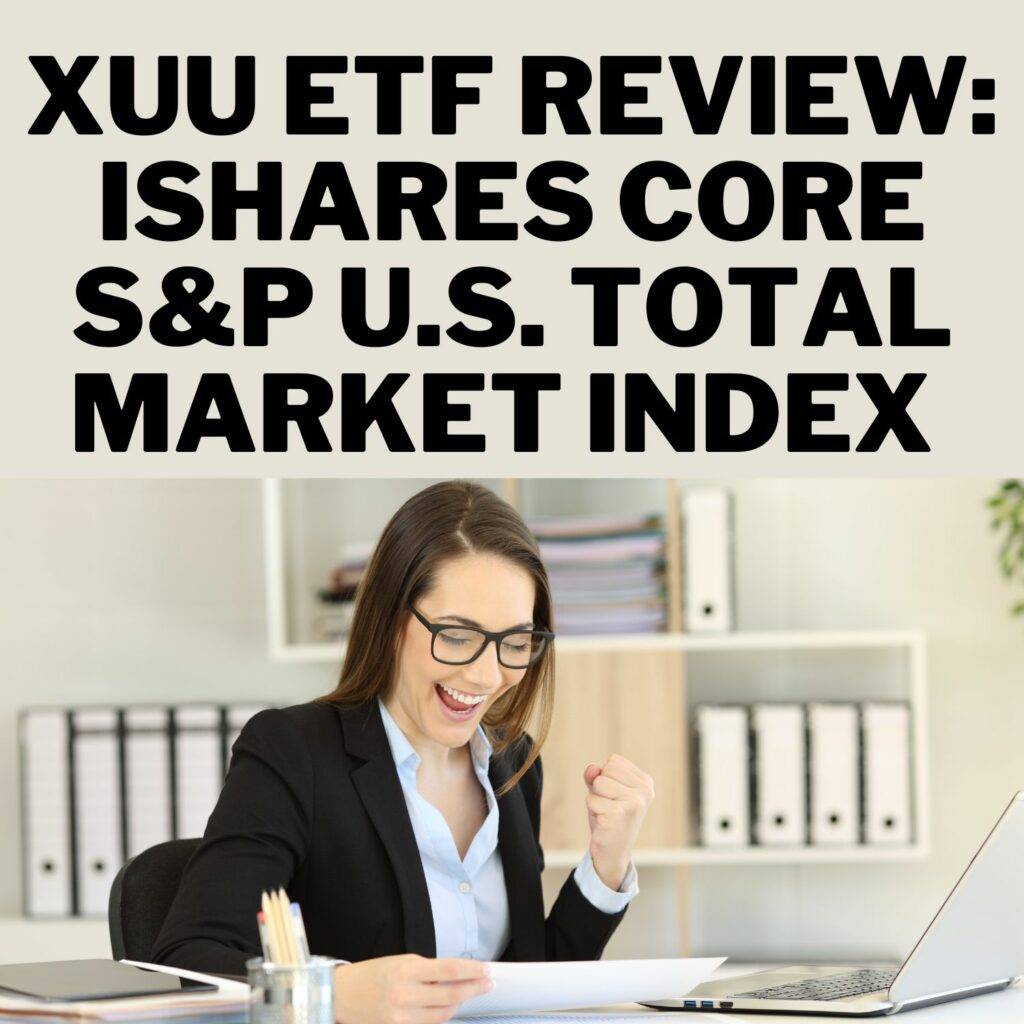XUU ETF, also known as the iShares Core S&P U.S. Total Market Index, is a popular exchange-traded fund (ETF) that offers investors exposure to a broad range of U.S. equities. This ETF is designed to track the performance of the S&P Total Market Index, which includes large-, mid-, small-, and micro-cap stocks listed on U.S. exchanges. With over 1000 words, we can delve into various aspects of XUU.TO, including its investment strategy, performance, portfolio composition, costs, and its suitability for different types of investors.
Investment Strategy and Objectives
XUU.TO aims to provide long-term capital growth by replicating, to the extent possible, the performance of the S&P Total Market Index. The ETF invests in U.S. stocks across various market capitalizations, thus offering a diversified exposure to the U.S. equity market. This broad market exposure makes it an attractive option for investors seeking to invest in the U.S. economy as a whole.
XUU ETF Performance Analysis
XUU.TO’s performance is closely tied to the performance of the S&P Total Market Index. Historical performance data indicates that this ETF has provided solid returns over the years, although, like any investment, it comes with its share of volatility. The ETF’s performance is influenced by the overall health of the U.S. economy and the performance of the U.S. stock market.
XUU vs VUN
Key Differences
Index Tracked: XUU tracks the S&P Total Market Index, while VUN tracks the CRSP US Total Market Index. Although both indexes aim to provide comprehensive U.S. market exposure, there may be slight differences in their constituent stocks and weightings.
Fund Management: XUU is managed by BlackRock (iShares), and VUN by Vanguard, both highly regarded in the ETF space, but they may have different management styles and approaches.
MER: XUU has a lower MER at 0.08%, while VUN’s MER is 0.17%.
In summary, both XUU.TO and VUN.TO offer Canadian investors broad exposure to the U.S. stock market with a low-cost structure. The choice between them can depend on personal preference for a specific index or fund manager, as well as on the minutiae of their holdings and performance history.
Portfolio Composition
The portfolio of XUU.TO is highly diversified, comprising a wide array of sectors such as technology, healthcare, financials, consumer discretionary, and industrials. This diversification helps mitigate risk as the impact of a downturn in any single sector is cushioned by the performance of others. The ETF includes holdings in some of the largest U.S. companies, as well as a significant number of mid- and small-cap stocks, providing a comprehensive exposure to the U.S. market.
Costs and Fees XUU ETF
One of the advantages of XUU.TO is its low cost. ETFs typically have lower management expense ratios (MERs) compared to mutual funds, and XUU.TO is no exception. Its low MER (0.08%) makes it an attractive option for cost-conscious investors.
Suitability for Investors
XUU.TO is suitable for a range of investors, particularly those looking for exposure to the U.S. market as part of a diversified investment portfolio. It is an excellent choice for long-term investors who wish to benefit from the growth potential of U.S. equities. However, due to its exposure to the equity market, it may not be suitable for extremely risk-averse investors or those with a short investment horizon.
Risk Considerations
Investing in XUU.TO involves risks similar to investing directly in the U.S. stock market. These include market risk, where the value of the ETF can fluctuate due to changes in the stock market, and currency risk, as the ETF is exposed to U.S. dollar fluctuations. Investors should also be aware of the liquidity risk and the concentration risk, although the latter is somewhat mitigated by the ETF’s diversified nature.
Tax Implications for Canadian Investors
For Canadian investors, it’s important to consider the tax implications of investing in a U.S.-based ETF. Dividends from U.S. stocks may be subject to withholding taxes. However, Canadian investors can benefit from favorable tax treatment if they hold the ETF in specific types of accounts, like RRSPs or TFSAs.
Conclusion
In conclusion, XUU.TO represents a compelling investment opportunity for those looking to gain broad exposure to the U.S. stock market. Its diversified portfolio, low cost structure, and track record of performance make it an attractive option for a variety of investors. However, as with any investment, it is crucial for individuals to assess their investment goals, risk tolerance, and time horizon before investing in XUU.TO.

